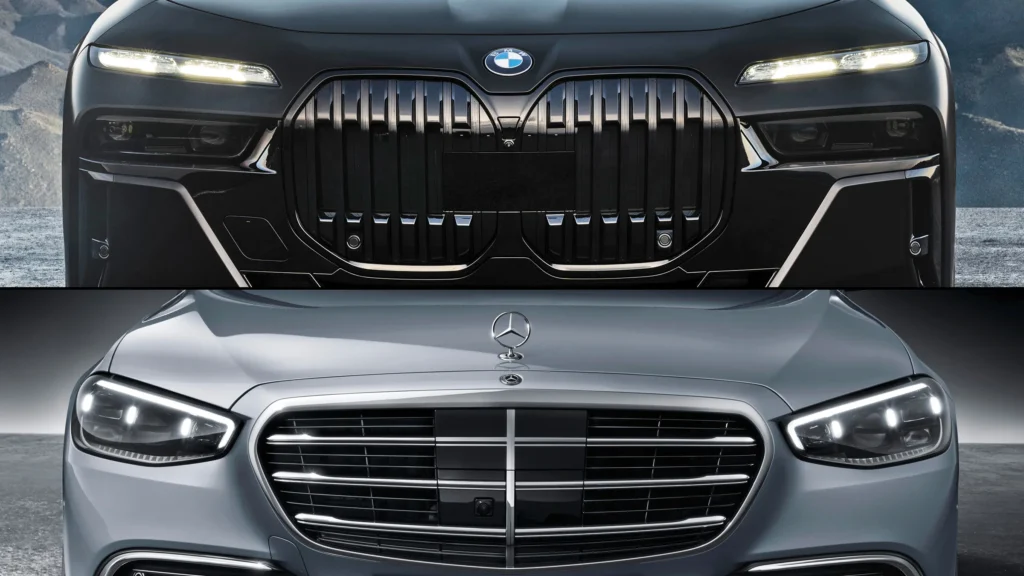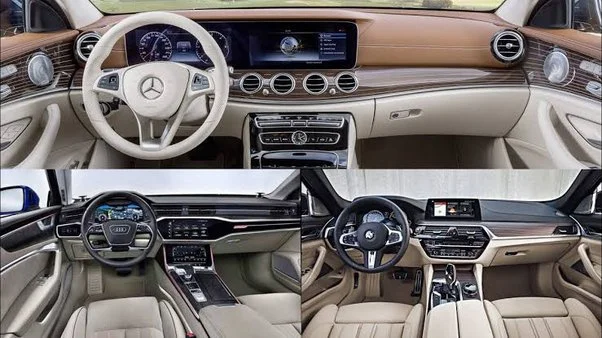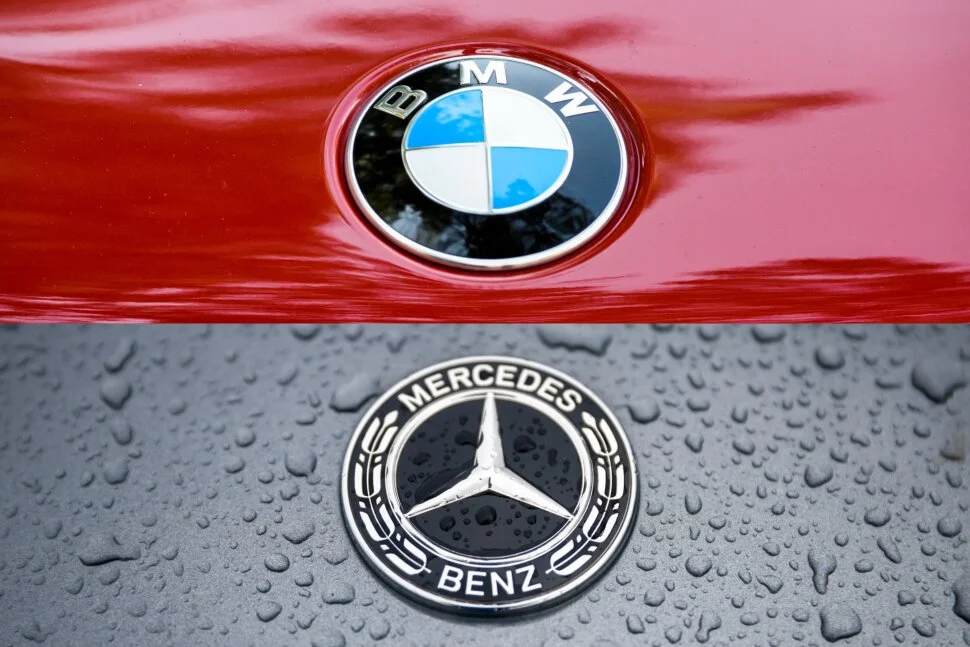When it comes to luxury sedans, few brands are as iconic as BMW and Mercedes-Benz. Both manufacturers have a long-standing reputation for producing high-quality vehicles that combine performance, comfort, and cutting-edge technology. This blog will explore the key differences and similarities between these two automotive giants, helping you decide which luxury sedan is the right fit for you.
Brand Heritage and Philosophy
BMW:
Founded in 1916, BMW is known for its motto, “The Ultimate Driving Machine.” This philosophy emphasizes sportiness, performance, and driver engagement. BMW vehicles are engineered to provide a dynamic driving experience, making them popular among enthusiasts.
Mercedes-Benz:
With roots dating back to 1886, Mercedes-Benz has a rich history in automotive innovation. The brand focuses on luxury, comfort, and advanced technology. Mercedes vehicles are designed to deliver a smooth, refined ride, appealing to those who prioritize comfort and elegance.
Performance and Handling

BMW Performance:
BMW sedans, such as the 3 Series and 5 Series, are renowned for their responsive handling and powerful engines. The brand offers a range of performance-oriented models, including the M Series, which features enhanced powertrains and sport-tuned suspensions. BMW’s rear-wheel-drive layout contributes to its sporty handling characteristics, providing a connected feel to the road.
Mercedes-Benz Performance:
Mercedes sedans, like the C-Class and E-Class, also deliver impressive performance, but with a focus on comfort. The brand’s AMG models, such as the AMG C 63, provide exhilarating power and performance. Mercedes vehicles often feature advanced suspension systems that prioritize ride quality, ensuring a smooth experience even on rough roads.
Interior Quality and Comfort

BMW Interior:
The interiors of BMW sedans are driver-focused, featuring high-quality materials and a modern design. The cockpit is designed for functionality, with intuitive controls and a sporty feel. While comfortable, BMW interiors tend to emphasize a more athletic aesthetic, with sport seats that provide excellent support during spirited driving.
Mercedes-Benz Interior:
Mercedes-Benz sedans are known for their luxurious interiors, which often include premium materials, ambient lighting, and advanced technology. The brand’s commitment to comfort is evident in features like multi-zone climate control, plush seating, and high-end finishes. The interiors are designed to create a serene driving environment, making long journeys enjoyable.
Technology and Infotainment
BMW Technology:
BMW’s iDrive infotainment system is user-friendly and features a responsive touchscreen interface. The system supports Apple CarPlay and Android Auto, allowing seamless smartphone integration. Advanced driver-assistance features, such as adaptive cruise control and lane-keeping assist, are available across the lineup.
Mercedes-Benz Technology:
Mercedes-Benz vehicles come equipped with the MBUX (Mercedes-Benz User Experience) infotainment system, which includes a voice-activated assistant and a high-resolution display. The system is known for its intuitive interface and extensive connectivity options. Mercedes vehicles also offer a wide array of safety features, including active brake assist and blind-spot monitoring.
Reliability and Maintenance

BMW Reliability:
BMW vehicles generally receive average reliability ratings. While they are known for their performance and driving dynamics, maintenance costs can be higher compared to other brands. Parts and service for BMWs may be more expensive, which is an important consideration for potential buyers.
Mercedes-Benz Reliability:
Mercedes-Benz also has average reliability ratings. The brand is known for its advanced technology, which can sometimes lead to higher repair costs. However, Mercedes vehicles often come with comprehensive warranties, providing peace of mind for owners.
Pricing and Value
BMW Pricing:
- Entry-level BMW 3 Series starts at around $42,000.
- Mid-range models like the 5 Series typically range from $55,000 to $75,000.
- Luxury models, such as the 7 Series, can exceed $86,000.
BMW offers a variety of models, allowing buyers to choose according to their budget and preferences.
Mercedes-Benz Pricing:
- Entry-level Mercedes-Benz C-Class starts at approximately $43,000.
- Mid-range models like the E-Class generally range from $57,000 to $75,000.
- Flagship models, such as the S-Class, start around $115,000.
Higher starting prices reflect the luxury positioning and advanced features of Mercedes vehicles.
Conclusion
Choosing between BMW and Mercedes-Benz ultimately comes down to personal preference and driving style. If you prioritize sporty performance and engaging handling, BMW may be the better choice. On the other hand, if you value luxury, comfort, and advanced technology, Mercedes-Benz is likely to meet your needs.
Both brands offer a range of luxury sedans that cater to different tastes and requirements, ensuring that there is a perfect option for every buyer. Whichever you choose, you can expect a premium driving experience that embodies the essence of luxury automotive engineering.

